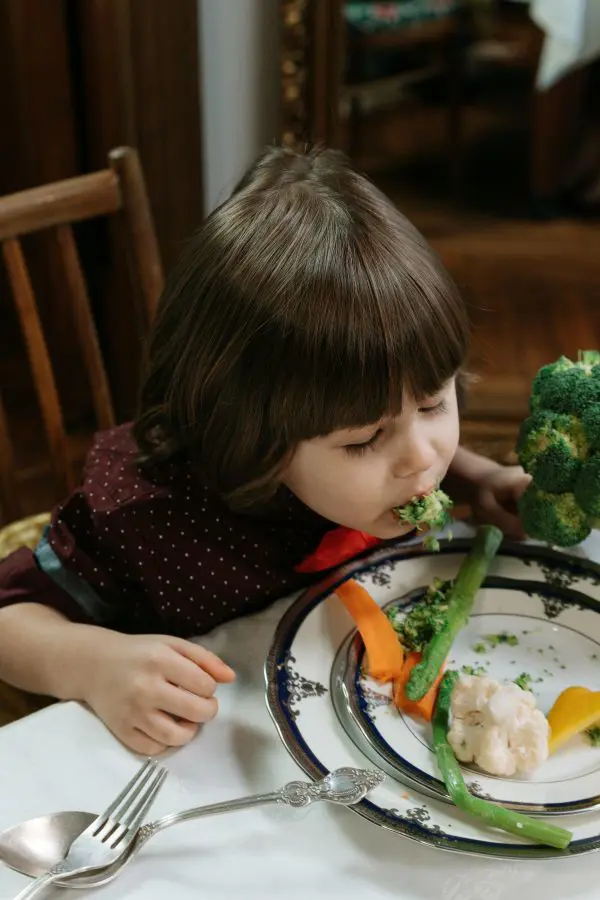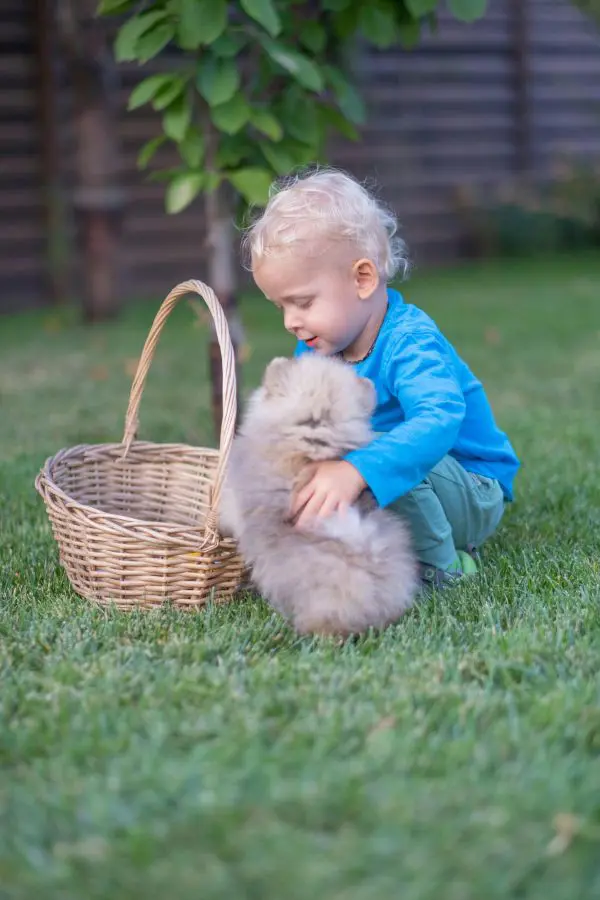20 Common Toddler Behavior Problems And Their Solutions

Parenting a toddler is a thrilling and sometimes overwhelming experience as it appears to be an emotional joy ride. They have one fun-loving moment when they are clowning around and the next they are crying their eyes out all because the cookie is broken.
If you are struggling with your little one's behavior, know that you are not alone. For your help, we have prepared this article including every parent's problem and understanding toddlers' behaviors. Here, you will be able to understand common toddler behavior and challenges and practical solutions to help both parents and children thrive during formative years.
1. Tantrums

Every parent dreads the infamous public meltdown. Your previously calm toddler suddenly throws themselves on the floor of the grocery store, screaming because you won't buy their favorite candy or anything that you refuse to give them. Tantrums typically stem from frustration, tiredness, or overwhelming emotions that toddlers can't yet express verbally.
Solution: Stay calm and avoid giving in to demands during tantrums, as this reinforces the behavior. Instead, acknowledge their feelings: "I see you're really upset about not getting candy." For major meltdowns, find a quiet spot and wait it out. Prevent tantrums by maintaining regular nap and meal schedules, and prepare your child for transitions: "We're leaving the park in five minutes."
2. Refusal To Share
"Mine!" becomes your toddler's favorite word as they fiercely guard their possessions. This behavior reflects their developing sense of ownership and independence.
Solution: Don't force sharing, as this can increase anxiety about possessions. Instead, teach taking turns: "You can play with the truck for five minutes, then it's Sarah's turn." Model sharing in daily activities and praise when your child shares voluntarily. Have special toys that don't need to be shared.
3. Picky Eating

Suddenly, your once-adventurous eater refuses everything except chicken nuggets. Picky eating often peaks during toddlerhood as children become more independent and aware of their preferences. Plus, they only want foods with flavorful blasts and avoid healthy ones.
Solution: Maintain a relaxed attitude about food and avoid power struggles. Offer various healthy choices and let your child decide what and how much to eat. Likewise, include them in meal preparation and make food fun through creative presentation. Continue offering new foods alongside familiar ones without pressure.
4. Biting And Hitting
When your toddler starts using their teeth as a weapon, it can be both embarrassing and concerning. Biting often occurs due to frustration, attention-seeking, or simple curiosity about the cause and effect. And same goes for hitting as well.
Solution: Respond immediately with a firm "No biting or hitting, it hurts!" Keep the response brief and consistent. Offer alternative ways to express feelings, like using words or gestures. For chronic biters, observe triggers and redirect before the behavior occurs. Praise positive interactions and provide teething toys and oral stimulation.
5. Separation Anxiety
Drop-offs become increasingly difficult as your toddler clings and cries when you leave. This common phase of toddlers reflects their growing awareness of separation and fear of abandonment.
Solution: Create goodbye rituals and keep departures brief but loving. Avoid sneaking away, as this can increase anxiety. Plus, being a parent, it will be best if you practice short separations with trusted caregivers and always follow through on promises to return. Use transitional objects like a special stuffed animal for comfort.
6. Running Away In Public

Every toddler has a habit of darting away in crowded places, creating dangerous situations. This behavior often stems from a combination of curiosity and limited impulse control.
Solution: Use safety harnesses or wrist straps in high-risk situations. Practice "freeze" games at home to develop stopping commands. Establish consequences for running away and reward staying close. Explain safety rules before outings and involve them in spotting potential dangers.
7. Nightmares And Sleep Issues
Nightmares can disrupt a toddler's sleep and this can lead to fear and anxiety about bedtime. As children transition through developmental stages they may experience vivid dreams or fears that can disrupt their sleep, causing them to wake up crying or feeling scared.
Solution: Create a calming bedtime routine that includes reading or quiet time. Discuss any fears they may have during the day and reassure them with comfort items like stuffed animals or night lights.
8. Clinginess

Your formerly independent toddler becomes extremely clingy, making it difficult to complete tasks. This behavior might indicate anxiety or the development of new fears.
Solution: Gradually increase independence through "practice" separations. Create special tasks that make them feel helpful and important you can say "Arrange these blocks according to the numbers, while I am cleaning, and then I will give you a reward". Also, you can maintain predictable routines to increase security. Offer lots of physical affection during calm times.
9. Not Listening
At this age, their attention spans are short, and they are often distracted easily by their surroundings or their own thoughts. This can lead to misunderstandings with parents and caregivers, making it seem like they are ignoring instructions. Additionally, toddlers may not fully grasp the importance of listening or may be more focused on exploring their environment.
Solution: Use clear and simple language, give warnings before transitions, and reinforce positive behavior with praise when the child listens. Likewise, creating a structured environment and minimizing distractions can also help toddlers improve their listening skills.
10. Sibling Rivalry
This problem often arises when a new sibling enters the family or as children grow and develop their individual identities. Toddlers may feel threatened by the new baby's arrival, leading to jealousy and competition for parental attention. This rivalry can manifest in various ways, such as fighting over toys, demanding attention, or expressing frustration.
Solution: Spend one-on-one time with each child to reinforce their importance in your life. Encourage cooperative play and celebrate moments when they get along well together.
11. Messiness

Toddlers love to experiment with different textures and materials, leading them to create messes by dumping toys, drawing on walls, or spreading food. This behavior is not malicious; rather it stems from their desire to learn and understand the world around them. However, parents may find this messiness frustrating as it disrupts home order.
Solution: Set clear expectations about where playtime can happen and involve your child in clean-up activities afterward. Use positive reinforcement to encourage tidiness after play sessions, for example, instead of showing anger, involve them in cleaning activities, also, avoid giving permanent markers or pens.
12. Defiance And "No"
Your toddler's favorite word becomes "no" and simple requests turn into power struggles. This behavior represents their growing independence and desire for control.
Solution: Offer limited choices to give them a sense of control: "Would you like to wear the red shirt or the blue shirt?" Phrase requests positively; "Let's put the toys away" instead of "Don't leave toys out." A simple no can change into a happy yes if you use polite words with a happy face.
13. Lack Of Empathy
Lack of empathy is a common behavioral challenge in toddlers as they navigate their emotional development. During this stage, children primarily focus on their own feelings and experiences, which can make it difficult for them to recognize and respond to the emotions of others. While most toddlers will gradually learn to express empathy, some may struggle to understand another person's pain or sadness, in such cases here is the solution:
Solution: Teach empathy through storytelling that highlights emotions and appropriate responses (e.g., "How do you think she feels?"). Model empathetic behavior yourself so they can learn through observation how kindness looks in action.
14. Hair Pulling Or Scratching

Many toddlers engage in these behaviors as a way of self-soothe during stressful times, such as when they're bored, tired, or feeling overwhelmed. While some hair pulling may be harmless and part of normal development, persistent or aggressive pulling can lead to noticeable hair loss and skin irritation, which can worry parents.
Solution: Identify triggers and provide appropriate sensory alternatives like stress balls or fidget toys. Keep fingernails trimmed and consider gloves for severe cases. Also, parents can teach self-calming techniques and reward gentle hands. Consult professionals if behaviors persist.
15. Food Throwing
Meals become messy affairs as your toddler throws food on the floor. This behavior might be exploratory or attention-seeking. But, sometimes these behaviors literally freak out parents or caregivers.
Solution: Serve small portions and remove the plate after several throws. Teach sign language or words for "all done." Make mealtimes social events focused on family interaction. Likewise, consider a splash mat under the high chair and involve them in cleanup.
16. Toilet Training Resistance
Some toddlers strongly resist toilet training, leading to frustration for parents eager to move past diapers. This resistance often stems from fear or a desire for control.
Solution: Wait for readiness signs and avoid pressure. Make bathroom visits fun with special books or toys. Consider a reward system for using the potty. Be patient with accidents and maintain a positive attitude. Sometimes taking a break from training for a few weeks helps reset the situation.
17. Excessive Screen Time Demands

Nowadays, many toddlers become overly fixated on screens because parents often hand them mobiles or tablets during meals or other activities to keep them busy and occupied. This behavior of parents can lead children to demand more screen time, and when they don't get according to their demands they start to cry or throw tantrums. This addiction-like behavior can interfere with healthy development.
Solution: Set clear limits on screen time from the start. Create a daily schedule showing when screen time is allowed. Offer engaging alternatives like art projects, outdoor play, or imaginative games. Use screen time as a privilege, not a reward or punishment.
18. Interrupting
Your toddler constantly interrupts conversations, demanding immediate attention. This behavior reflects their egocentric worldview and limited patience.
Solution: Teach a signal for "wait" when they should not interrupt and talk to them quickly when you become free. Praise the patient waiting and give full attention when possible. Set aside special one-on-one time daily to reduce attention-seeking behaviors.
19. Rough Play With Pets

Toddlers may handle pets roughly out of excitement or curiosity, putting both child and animal at risk. This often stems from not understanding how to be gentle.
Solution: Demonstrate gentle touch and supervise all interactions. Teach respect for animals through books, different animal-loving cartoons, and role-play. Create rules about approaching pets and enforce them consistently. Reward gentle behavior and remove the child if they cannot be gentle.
20. Testing Boundaries
Your toddler repeatedly tests limits, even with clearly established rules. This behavior helps them understand their world and their place in it, however, creates more annoyance for the parents.
Solution: Maintain consistent, clear boundaries while acknowledging their feelings. Use natural consequences such as a child who doesn't play with the rules may not be invited to play again. Praise good choices and provide positive attention for desired behaviors. Remember that boundary testing is normal and helps children develop self-regulation skills.
Some Additional Problematic Behaviors Of Toddlers
Let's discuss some other problematic behaviors as well:
1. Whining
Toddlers whine when they are tired, hungry, or seeking attention.
Solution: Address the underlying need, such as hunger or fatigue. Teach them to use words instead of whining by modeling the behavior you want to see.
2. Lying
Toddlers may tell lies as they begin to understand concepts of reality versus fantasy, often out of fear of punishment or desire for attention.
Solution: Address lying calmly without punishment: instead, encourage honesty by discussing the importance of telling the truth. Reinforce positive behavior when your child is honest about mistakes.
3. Fear of Strangers
Many toddlers exhibit fear of unfamiliar people, which can lead to shyness or anxiety in social situations.
Solution: Gradually expose the child to new people in a comfortable setting while remaining close for reassurance. Discuss feelings about strangers openly and encourage social interactions at their pace.
4. Difficulty with Transitions
Toddlers may resist transitions between activities (e.g., from playtime to mealtime), leading to frustration for both the child and caregiver.
Solution: Use visual schedules or timers to prepare your toddler for upcoming transitions. Provide warnings before changes occur, for example, "In five minutes, we will clean up," so they have time to adjust mentally.
5. Regression in Skills
Your potty-trained toddler starts having accidents, or your independent eater wants to be spoon-fed. Regression often occurs during times of stress or change.
Solution: Maintain patience and avoid shaming. Looking for underlying causes like new siblings or changes in routine. Offer extra support while encouraging age-appropriate independence. Celebrate small steps towards previous capabilities.





